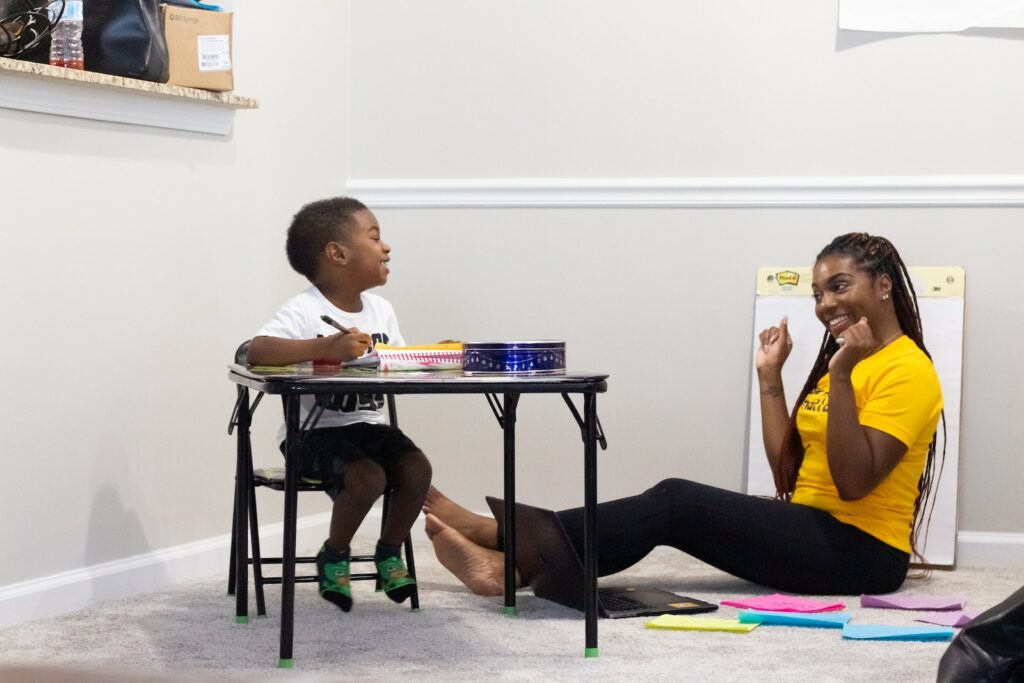This post was originally published on this site

A Crucial Factor in Academic Achievement
The role of parental involvement in a child’s education has long been acknowledged as an essential component to a student’s overall success. A growing body of research points to a strong link between active parental involvement and improved academic performance, particularly within the context of private schooling. Many parents choose private schools to secure a higher quality education for their children, with a belief that their participation in the educational process will lead to increased success for the child both academically and personally.
In contrast to public schools, private schools tend to emphasize personalized learning experiences and smaller class sizes. This environment fosters a close-knit school community where parent involvement can have a significant impact. While there is no one-size-fits-all approach to parental involvement, it is crucial for parents to understand the various forms it can take, and how it can bolster their child’s educational advancement.
Nurturing the academic and personal development of a child is a delicate balance, especially within the realm of private education. As a result, it is essential for parents to be informed and engaged in the process. By examining the nuanced role of parental involvement in private school education, families can better navigate the opportunities and challenges that come with ensuring their child’s success in this unique educational setting.
Key Takeaways
- Parental involvement plays a critical role in academic achievement, especially in private schools.
- Engaged parents can have a significant impact in areas such as learning experiences and the school community.
- Understanding various forms of involvement can help parents support their child’s education effectively.
Importance of Parental Involvement
Parental involvement plays an essential role in a child’s learning and academic achievement, contributing significantly to their success in private schools. By engaging in their child’s education, parents help establish a positive environment that encourages learning, fosters a sense of belonging, and improves behavior.
One key aspect of parent involvement is supporting children’s learning both inside and outside the classroom. Active engagement in a child’s education – such as attending parent-teacher conferences, assisting with homework, or discussing academic progress – can lead to better academic outcomes for students. It enables parents to have a clear understanding of the school’s expectations while giving them the chance to address any concerns promptly.
Furthermore, a strong, positive relationship between parents and their child’s school contributes to an enriched education experience. This relationship promotes open communication and collaboration between parents and teachers, ensuring that a child’s needs are addressed more effectively. In a private school setting, where parents often have more opportunities for involvement, the benefits of this partnership are even more pronounced.
In addition to enhancing academic achievement, parent involvement can also help improve the child’s behavior. A supportive home environment that encourages learning nurtures self-discipline, focus, and motivation. When parents are involved in their child’s education, they are better equipped to address any behavioral issues early on and work with teachers and staff to find appropriate solutions.
In conclusion, having engaged and supportive parents significantly contributes to a child’s success in private schools. Parental involvement positively impacts learning, academic achievement, overall behavior, and establishes a strong foundation for the child’s future educational endeavors.
Types of Parental Involvement
Parental involvement plays a crucial role in the success of a child’s education, especially in private schools. There are various ways parents can actively participate in their children’s schooling, which can be categorized into two main types: home-based and school-based involvement. Both types contribute to creating a positive learning environment and fostering a strong partnership between parents and schools.
Home-Based Parental Involvement
This type of parental involvement entails activities that parents do at home to support their child’s learning and development. These may include:
- Establishing routines and setting expectations for schoolwork and other responsibilities.
- Helping with homework, projects, and reviewing for exams to ensure their child understands the material.
- Encouraging reading and educational activities beyond the curriculum to broaden their child’s horizons.
- Regularly communicating with teachers to stay informed about their child’s progress and address concerns early on.
By participating in their child’s education at home, parents can reinforce what their child learns in school, making them feel supported and motivated.
School-Based Parental Involvement
This type involves parents actively engaging in activities within the school community. Examples of school-based parental involvement include:
- Volunteering to assist with school events, such as fundraisers, field trips, or sports activities.
- Attending parent-teacher conferences, school assemblies, and other functions.
- Joining parent organizations, such as the Parent-Teacher Association (PTA), allowing them to be part of the decision-making process within the school.
- Collaborating with school administrators and teachers to develop school policies, participate in curriculum planning, or address issues affecting the school community.
When parents are actively involved in school life, they help create a strong, supportive network that enhances the educational experience for their children, fostering a healthy and nurturing atmosphere for all students.
In summary, a combination of both home-based and school-based parental involvement is critical to ensuring a child’s academic success. By maintaining open communication and supporting the child’s education both at home and in school, parents can collaborate with private schools to create a solid foundation for learning and growth.
The Influence on Student Success
Parental involvement plays a significant role in a child’s academic journey, particularly in private schools. When parents are actively involved in their child’s education, it positively impacts student success and achievement across various aspects such as social skills, motivation, attendance, and student outcomes.
One of the key benefits of parental engagement is the improvement of social skills in students. As parents communicate and collaborate with teachers and school staff, they gain insight into the strategies that will best support their child’s social development. Also, when parents model healthy interpersonal relationships, children are likely to mimic these interactions, improving their own social skills.
Another crucial factor influenced by parental involvement is student motivation. Engaged parents often foster a supportive learning environment at home, where they encourage their children to explore their interests, set achievable goals, and celebrate accomplishments. This nurturing atmosphere helps instill discipline and determination in students, leading to a higher drive for academic success.
Student attendance is directly linked to parental involvement, as engaged parents are more likely to emphasize the importance of punctuality and regular school attendance. They are more likely to follow up on their child’s absenteeism and work with educators to address any issues that might be contributing to frequent absences.
When it comes to evaluating student outcomes, parental involvement has a positive influence on students’ academic success. Engaged parents are more likely to be aware of their child’s academic strengths and weaknesses, allowing them to provide targeted support and resources to help their child improve in areas of difficulty. Moreover, consistent communication between parents and teachers can help identify any barriers to learning that may have gone unnoticed, ensuring that students receive the necessary support to excel academically.
In conclusion, parental involvement is an essential element in enhancing student success within private schools. By taking an active role in their child’s education, parents can positively impact their child’s social skills, motivation, attendance, and overall academic success.
Role in Academic Fields
Parental involvement plays a significant role in a student’s success within academic fields, especially in private schools. This involvement can range from assisting with homework, to encouraging interest in STEM subjects, to fostering literacy skills and promoting reading achievement.
In the realm of STEM (Science, Technology, Engineering, and Mathematics), parental involvement can be crucial for a student’s progress. By showing interest in these subjects and offering support, parents can inspire their children to explore these fields more deeply. Engaging in hands-on activities together or attending relevant workshops can help students develop important problem-solving skills and enhance their overall knowledge in STEM.
Literacy is another area where parental involvement can greatly contribute to a student’s success. Encouraging children to read regularly and discussing what they are reading fosters reading comprehension and critical thinking. Parents can also help by providing enriching materials that cater to their children’s interests and reading levels, while also purposely introducing diverse and thought-provoking literature.
Homework is a crucial component of academic achievement, and parental support in this area can influence a student’s ability to succeed. Parents can create a conducive environment for studying and ensure their children establish consistent homework routines. By lending guidance when needed and reviewing their work, parents motivate students to take responsibility for their learning and promote academic excellence.
In conclusion, parental involvement is paramount to a student’s academic success, particularly in private school settings. By engaging in various academic fields such as STEM, literacy, and homework, parents can foster a supportive environment that nurtures the growth and development of their children’s intellectual capacities.
Parental Involvement at Different Education Levels
When it comes to ensuring private school success, parental involvement plays a significant role. Regardless of the educational level, a strong support network at home and active engagement with school activities have a positive impact on a student’s academic performance and overall growth.
In primary schools, involving parents in their child’s education helps to lay a solid foundation for a life-long love of learning. Research indicates that parental support at this stage boosts academic achievements and confidence levels among young learners. Activities such as volunteering during school events, participating in parent-teacher meetings, and assisting with homework are effective ways to strengthen this involvement. As seen in a study, increased parental involvement results in higher school success rates.
For secondary school level students, the challenges and expectations presented in their academic journey can seem overwhelming. Parents can play an essential role in providing guidance, helping to set goals, and building a strong support system. In addition, collaborative decision-making with the school administration, such as joining parent-teacher organizations, promotes a conducive learning environment for the students. The positive correlation between parental involvement and satisfaction emphasizes the importance of this engagement at the secondary level.
High school students benefit from their parents’ involvement by developing effective study habits, time management skills, and better decision-making abilities. Strong communication between the school and parents helps with staying informed about academic progress, college and career guidance, and addressing any issues that may arise. An Edutopia article suggests that a respectful and mutually supportive relationship between parents and school staff creates a nurturing environment for student success.
In conclusion, engaging parents on all education levels is vital to achieving success in private schools. Through active involvement, parents can provide the necessary support and guidance to their children, helping them to overcome obstacles and achieve their full potential.
Cultural and Geographical Considerations
Parental involvement plays a crucial role in private school success, and this importance can vary across different cultural and geographical contexts. In countries like China, the emphasis on education and success is deeply rooted in their culture. Parents often have high expectations for their children’s academic achievements and are more involved in their education as a result. This can include hiring tutors, attending school events, and regularly communicating with teachers to ensure academic progress.
In Greece, the importance of education is also valued. Parents encourage their children to succeed academically, and many Greek families place great significance on higher education. Although parental involvement in private schools may not be as intense as that seen in China, it still plays a significant role in supporting their children’s academic success.
Japan shares a similar cultural emphasis on education as these other countries. Japanese parents typically exhibit high levels of involvement in their children’s schooling, such as participating in school activities or providing encouragement through extracurricular activities. This culture of active parental involvement supports the success of students in private educational institutions.
Morocco, on the other hand, presents a unique set of cultural factors that influence parental involvement in private schools. Moroccan families value education highly, but societal norms may sometimes discourage direct parental involvement in schooling. Despite these potential barriers, Moroccan parents still play a crucial role in supporting their children’s education, often through more indirect means like financial support or reinforcing cultural values around academic success.
In Norway, the relationship between parental involvement and private school success can be quite different. Norwegian society values individualism and self-reliance, so parents might give their children more autonomy in their educational pursuits. While parental involvement can still play a part in private school success, the dynamics in Norway may be less structured than in other countries.
Finally, in the United States, parental involvement in private schools can vary greatly depending on various factors, such as socioeconomic status, cultural background, and geographical location. In general, parental involvement in private schools tends to be higher than in public schools. This can be attributed to the financial investment involved in private education and the belief that such involvement leads to better academic outcomes for students.
Overall, various cultural and geographical considerations contribute to the role of parental involvement in private school success. Understanding these differences can provide valuable insights for educators, policymakers, and parents themselves to maximize the positive impact of their involvement on children’s education.
School Characteristics and Community Impact
School characteristics play a significant role in fostering parental involvement, which in turn contributes to the success of private schools. Factors such as a school’s approach to education, curriculum, and extracurricular activities can influence the extent to which parents engage in their child’s education, and a supportive school community can strengthen parent engagement.
One aspect that affects parental involvement is the school’s approach to education. Private schools often have more autonomy in their methods and can focus on catering to a specific learning style or a particular educational philosophy. This flexibility allows families to seek out schools that align with their values and encourages them to take an active role in their child’s education.
Curriculum and extracurricular activities also play an essential role in attracting and maintaining parental involvement. A well-rounded curriculum that addresses the whole child, including their academic, social, and emotional needs, fosters a sense of community among students, parents, and teachers. Likewise, offering diverse extracurricular activities helps to create a sense of belonging, which further encourages parent engagement.
Community involvement is a critical aspect of the relationship between private schools and their surrounding communities. Schools must seek out ways to involve not only families but also local residents, businesses, and organizations to build a robust support network for the school and its students. Through community service projects, partnerships, and collaborations, private schools can establish strong ties within their local communities, leading to increased community support and resources for the school and its students.
The social networks that develop within a school community can have significant impacts on the success of private schools. Parents who are well-connected within the school community are more likely to participate in school activities, attend events, and volunteer their time and resources. Moreover, a strong social network among parents encourages information-sharing, collaboration, and support for one another both inside and outside of the school setting.
By understanding and addressing these factors, schools can facilitate and enhance parental involvement, ultimately leading to a more supportive school culture and, in turn, greater success for the private school and its students.
Promoting Parental Engagement
Engaging parents in their child’s education plays a crucial role in academic success, especially in private schools where expectations are often higher. One way to promote parental engagement is through the implementation of parent involvement programs. These initiatives offer various opportunities for parents to get involved in school activities, helping them stay informed about their children’s progress and fostering strong home-school partnerships.
Offering parenting classes can also be beneficial to both parents and students. These classes cover a wide range of essential topics such as time management, setting boundaries, and providing academic support. By equipping parents with vital skills and knowledge, they can effectively contribute to their child’s educational growth.
One of the most impactful forms of parental engagement is regular attendance at parent-teacher conferences. These meetings allow parents to communicate directly with educators, staying updated about their child’s development and achievements. Moreover, discussing their children’s learning goals and addressing potential challenges can help in fostering cooperation between parents, teachers, and students.
Establishing a school-parent compact can also play a vital role in promoting parental involvement. This agreement underlines the responsibilities of schools, parents, and students in promoting academic success. By outlining clear expectations and emphasizing the importance of collaboration, these compacts strengthen the bond between school stakeholders.
Encouraging parents to take part in school activities such as open houses, performances, and fundraisers can create a positive school environment. Parental participation in these events demonstrates their support and interest in their children’s educational experiences.
Field trips offer another opportunity for parents to actively engage in their child’s learning journey. By volunteering as chaperones, attending presentations, or helping with logistics, parents get the chance to witness and contribute to their children’s learning outside the classroom.
Finally, joining or participating in parent-teacher associations allows parents to advocate for their children and play an essential role in shaping the school’s policies and programs. This involvement ensures that their voices are heard and contributes significantly to the overall success of the school community.
Challenges and Solutions
One of the challenges in fostering parental involvement in private schools is the availability and allocation of resources. Parents may be unaware of the various ways in which they can contribute to their children’s education. Thus, it is crucial for schools to create clear avenues for parental participation and provide resources that make it easy for parents to engage in their children’s education. For example, schools could regularly offer workshops, training sessions, and informational materials to help parents better understand the curriculum and the school’s expectations.
Trust between parents and educators is a vital component of cultivating a successful learning environment. Parents need to feel confident that the school is acting in their children’s best interests, while teachers need to trust that parents are supporting their efforts. To build trust, schools should maintain open lines of communication through regular newsletters, parent-teacher conferences, and a transparent decision-making process involving both parties. Offering a parent questionnaire is an effective way of gathering feedback on school policies and gathering suggestions for improvement.
Boosting parental participation is an ongoing challenge for many schools. Attendance at school events, meetings, and conferences is critical to facilitate parental involvement and demonstrate that the school values their input. Schools can incentivize attendance by offering child care services during events, rescheduling events to suit parents’ schedules, and regularly updating parents with reminders about upcoming events.
The school climate plays a significant role in parental involvement. A supportive, inclusive, and welcoming climate is more likely to encourage parents to engage with the school and their children’s education actively. Schools can improve their climate by promoting a culture of respect, empathy, and collaboration among students, staff, and parents. Additionally, schools should establish programs that celebrate diversity and encourage cross-cultural understanding.
In conclusion, fostering parental involvement in private school success requires schools to provide ample resources, build trust, encourage participation, and create a welcoming school climate. By addressing these challenges and finding innovative solutions, private schools can enhance the engagement of parents, leading to more successful outcomes for their students.
Implications for Policy and Practice
Parental involvement plays a crucial role in the success of students in private schools. To ensure school improvement, it is essential for policymakers and educators to devise strategies that encourage parents to actively participate in their children’s education. Research shows that students with involved parents tend to have better attendance, behavior, and academic performance, as well as improved social skills source.
To foster a holistic education system, policymakers should consider implementing programs that promote mental health awareness and provide resources for both students and parents. This may include workshops on stress management, coping skills, and conflict resolution. Educators can also collaborate with mental health professionals to address any concerns or issues that might arise in the school.
In addition, school governance should prioritize effective communication and collaboration between teachers and parents. This can be achieved through regular meetings, transparent reporting of student progress, and opportunities for parents to voice their opinions on school-related matters. By including parents in decision-making processes, schools can create a more supportive and well-rounded educational environment for students.
Governments also play a significant role in promoting parental involvement, especially in Title I schools, which have a higher percentage of low-income students. Financial support and resources can be allocated to create initiatives that target parental participation and provide families with the necessary tools and resources to effectively support their children’s education.
Moreover, fostering a healthy and inclusive eco-system in private schools is essential. Encouraging collaboration and partnership between various stakeholders—including teachers, administrators, parents, and students—can lead to a more supportive and effective learning environment. This could entail creating forums for open dialogue, hosting parent-teacher conferences, and ensuring the school has a welcoming culture that invites parents to be actively engaged in their children’s education.
In conclusion, implementing policies and practices that emphasize parental involvement can greatly contribute to the success of private schools. By addressing key issues such as mental health, school governance, and educational support, both policymakers and educators can work together to create a positive and nurturing environment for students to excel within the education system.
Conclusion
The role of parental involvement in private school success is multifaceted and encompasses various dimensions. One essential aspect to consider is the impact of parental involvement on a child’s socio-emotional skills. By being actively engaged in their child’s education, parents can effectively promote the development of these skills, which are critical for academic and future success.
Parental school involvement also contributes to school success through the lens of social capital theory. This theory posits that the accumulation of social resources, such as networks and connections made via active parental participation, can lead to greater educational outcomes for children. It emphasizes the importance of developing strong relationships not only between parents and their children but also between parents and their children’s teachers, school administrators, and other support personnel.
Another crucial aspect of parental involvement in a child’s education is the reinforcement of NEP (New Environment Paradigm). By consistently providing feedback and support to their children, parents can emphasize the importance of adapting to new learning environments, staying flexible, and embracing changes in education. This mindset can help students succeed in private school settings, where unique expectations and requirements may be different from those encountered in public schools.
It is also essential to recognize that parental involvement can help mitigate the effects of socio-economic status on school success. By being engaged in their children’s education, parents from all socio-economic backgrounds can provide the necessary support and resources to foster academic achievement. This involvement can help level the playing field for students, regardless of their family’s financial situation.
In summary, parental involvement plays a crucial role in private school success by fostering socio-emotional skills development, harnessing resources through the social capital theory, promoting the adoption of NEP, and mitigating the effects of socio-economic disparities. Parents who actively engage in their children’s education can significantly contribute to their academic achievement and create a solid foundation for lifelong success.




